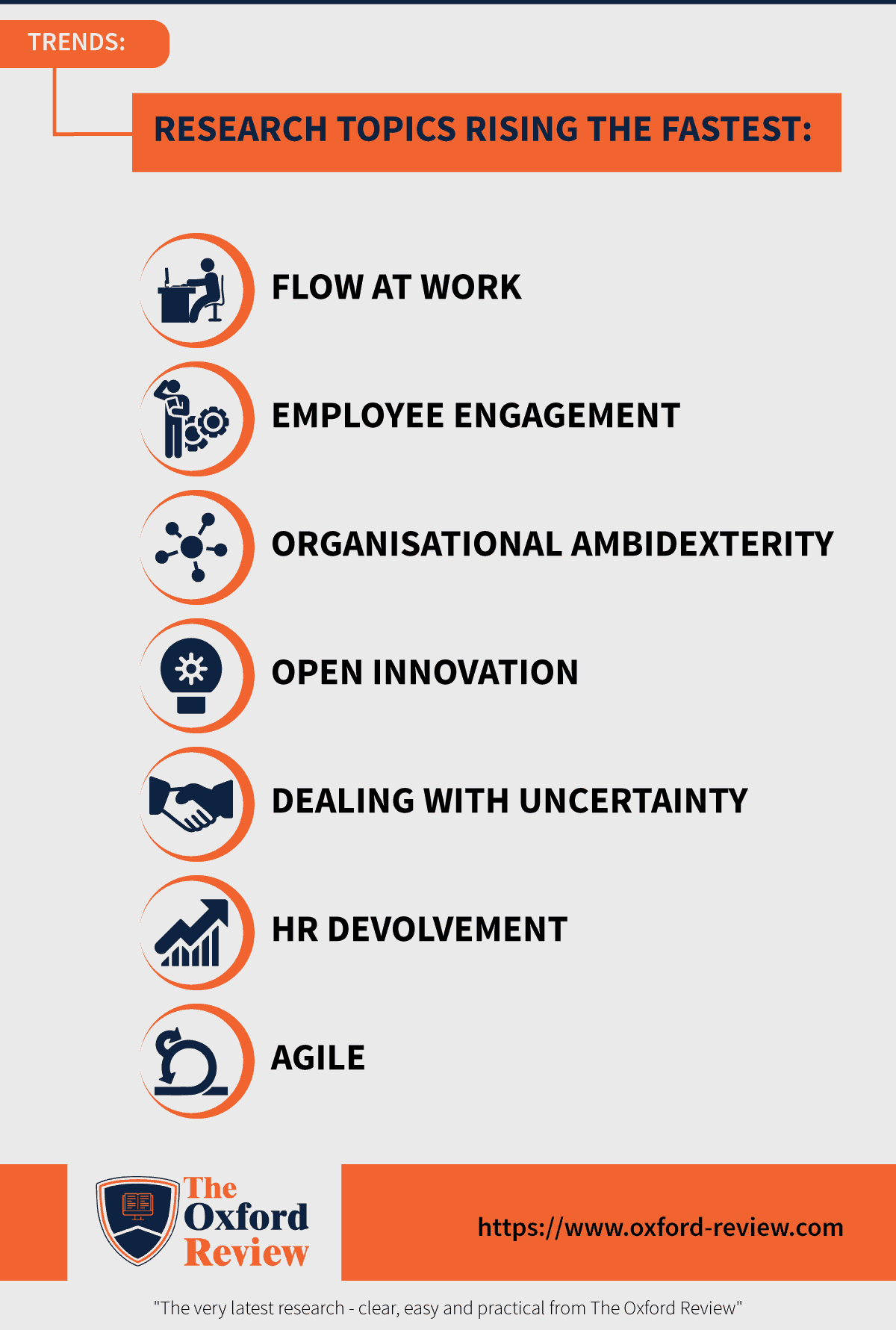Tag Archives for " Research Briefings "

Human Resources use research briefings in a wide range of ways to enhance their organisation’s performance and to support employees effectively. Here are ten ways HR professionals use research briefings: 1. Decision-making HR practitioners often use research briefings to inform their decision-making process. When faced with a particular challenge or issue, they can review relevant […]
Read moreYou need to be the most up-to-date professional in the room… We have a quick chat to make sure this is right for you and to understand who you are and what research will best serve your needs. It also enables you to ask any questions. If that all works out and it’s what you […]
Read more
As well as podcasts, infographics, video research briefings, a copy of the monthly review, last month we sent out the following research briefings, based on just published* research to members: What is followership and how does it work? Do personality tests predict workplace deviance? Emotion regulation abilities predict work engagement and attitudes towards work Entrepreneurs: […]
Read moreAdd Content Block Get free research briefings from the OR YES PLEASE Add Content Block What is a research briefing?and how to be easily the most knowledgable person in the room In this briefing about research briefings I look at:What a research briefing is What a good research briefing should containWho uses themHow professionals use themHow […]
Read more
This week our members received the following three research briefings… Psychological flexibility The four dilemmas of strategic timing Knowledge management success in organisations The critical importance of psychological flexibility and how it predicts mental health outcomes and resilience Keywords: Psychological inflexibility, Psychological flexibility, cognitive flexibility, cognitive inflexibility, coaching Psychological flexibility refers […]
Read more
Develop your staff In my last post I explored the most frequent use our members make of our research briefings which is for CPD purposes.In this article I want to look at how to use The Oxford Review to develop your staff, leaders and managers. The second most frequent use of our research briefings by […]
Read more
The research trends 2018. See also The Top Trends for 2019-2020 here There are around 78,500 peer reviewed research articles published around the world every month. Our aim is to find the most practical and useful of these across the below areas, turn them into easy to understand and practically useful briefings for our members. As […]
Read more
The The Oxford Review Annual 2017 of organisational research has just been released, and is available on Amazon US, Amazon UK and other good book outlets in paperback version. It contains the very latest fascinating and useful research for every company and organisation. The Oxford Review is being used by 1000’s of professionals including leaders, managers, […]
Read more
Get back copies of the monthly Oxford Review: The very latest evidence, thinking and research across the areas of Organisational Development, Organisational Change, Leadership, Management, Human Resource and Human Capital Management and practice, Learning and Development and Coaching. The Oxford Review is a monthly journal containing jargon free, practical and useful research briefings. No […]
Read more
This week members received research briefings about: Job crafting There have been slightly more than 4,000 studies about job crafting since 2008 when the first studies appeared. However over 800 studies have been published about job crafting this year alone, which indicates a significant research and organisational interest in the topic. So this week we […]
Read more